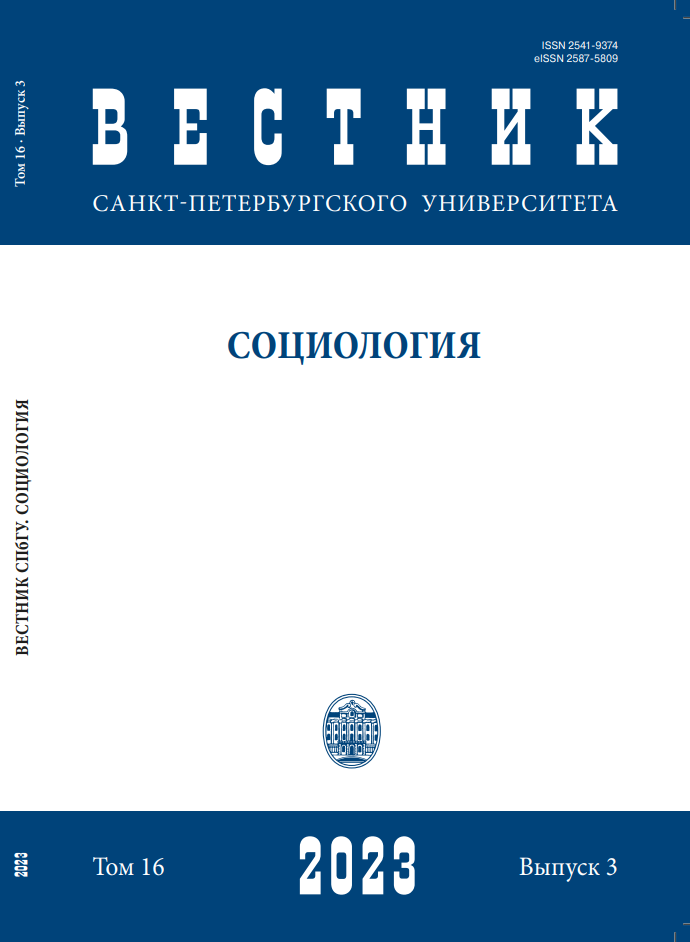Реляционная социология Харрисона Уайта и его последователей: к теории социокультурной дуальности
DOI:
https://doi.org/10.21638/spbu12.2023.301Аннотация
Статья посвящена обзору истории культурного поворота в анализе социальных сетей. Этот поворот продемонстрировал важность не только социальных, но и культурных структур. С одной стороны, культурные структуры конструируют контекст для социальных взаимодействий. А с другой стороны, социальные сетевые механизмы определяют особенности использования акторами символических форм. Следуя за Харрисоном Уайтом и Джоном Мором, дуальность социальных и культурных сетей можно определить как процесс взаимного конструирования, переплетения социальных и культурных порядков. Стоит особо отметить, что идея Х.Уайта о взаимном конструировании культуры и структуры (концепт «сетевого домена») стала отправным пунктом теоретических и эмпирических дебатов, посвященных проблематике дуальности социальных и культурных сетей. Концепт «сетевой домен» (netdom) связывает между собой и социальные сети (net), и пространство символических форм (dom). Поэтому целью данной работы стало выявление теоретических и методологических аргументов исследователей, подчеркивающих важность процесса взаимного конструирования социальных и культурных структур. В статье подробно разобраны понятия дуальность» и «реляционная социология». Основная часть работы сосредоточена на рассмотрении идей Х.Уайта и его последователей (Э.Мише, Я.Фузе, Н.Кроссли). В основе реляционной социологии Х.Уайта и его последователей лежит отказ от субстанциализма в пользу процессуальности социального мира, а также критика формалистского сетевого анализа, который заключает культурные содержания социальных связей в скобки. В заключении статьи описываются актуальные темы для будущих исследований, направленных на выявление взаимосвязей между социальными и культурными порядками.
Ключевые слова:
реляционная социология, Харрисон Уайт, дуальность, культура, социальные сети
Скачивания
Библиографические ссылки
Загрузки
Опубликован
Как цитировать
Выпуск
Раздел
Лицензия
Статьи журнала «Вестник Санкт-Петербургского университета. Социология» находятся в открытом доступе и распространяются в соответствии с условиями Лицензионного Договора с Санкт-Петербургским государственным университетом, который бесплатно предоставляет авторам неограниченное распространение и самостоятельное архивирование.




